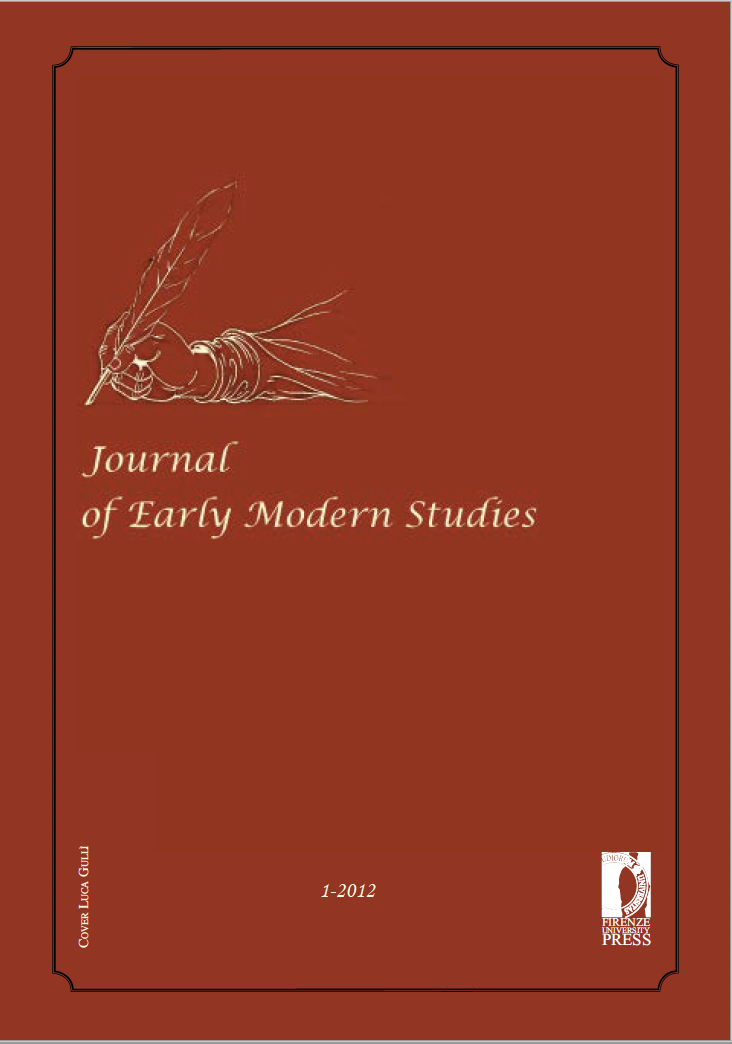Abstract
This essay examines the interaction between the law and the theatre in early modern England. It argues that, although these represented different social actions and therefore two separate universes of discourse, they closely interacted in many ways (it is well known, for instance, that theatrical performances were one of the activities of the Inns of Court), thus creating opportunities of cross-fertilization. Furthermore, both the theatrical and the legal practice were divided between the comparative ‘freedom’ of oral performance and the equally comparative ‘stability’ of written texts. Indeed, both the actors’ and the lawyers’ training made use of written texts and performance styles and the written texts recorded for the lawyers’ exercises closely resemble theatrical ‘scripts’ of various kinds. A further aim of this essay is to consider the written texts of the legal exercises in light of the issue of authorship. These, no less than the texts circulating in the theatre, were indeed collaborative texts, often constructed by combining plots and patches of various origin. The legal exercises were certainly a mandatory part of the law students’ training and were perhaps meant to be used as library material in each of the Inns. Equally uncertain is whether their written versions were freely taken jottings or commissioned reports, reviewed by a reader or by each moot judge involved in the activity.


